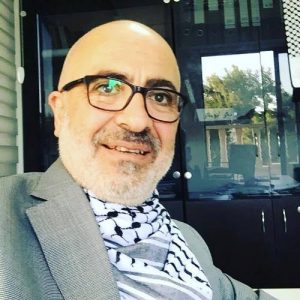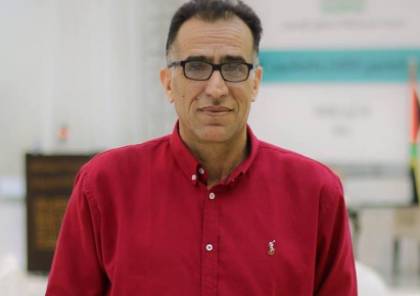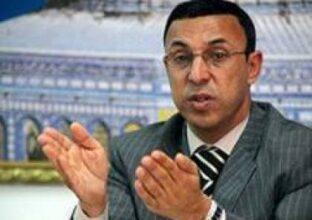700 days without a moment’s rest
Al-Khamisa News Network - Gaza

By: Abdel Ghani Salama
The sea has its ebb and flow, music its sound and silence, a painting is an artistic balance of color and empty space, the heart contracts and relaxes; life is moments we live between joy and suffering. That is the nature of things and the law of the universe — it has been so since existence began. In the simplest definition of human life: a variation between despair and hope, between fatigue and rest, between death and life — progression and regression, ascent and descent, movement and stillness. That is the world; except in the Gaza Strip. For two years things have been in continual decline — death, destruction, unending bleeding without respite. Even a glimpse of hope has receded further and further. Even wars — in every other war there were truces, safe corridors, humanitarian exits to save civilians — except the aggressive war on Gaza! It has not been quiet for a single hour.
Every person needs to rest their body by lying down or sleeping, to soothe their mind with a song, an evening, or a meeting with a loved one, to ease their intellect with a film or a novel, and to comfort their soul with reflection, memories and dreams. Without that, one cannot continue living.
When someone returns home they change their clothes, relax, have their dinner. Alongside that they need a fresh breeze, a kind word, a window looking out on an open horizon. They need a bathroom, a toothbrush, a gas cylinder, a kettle, a wardrobe, a chair, a refrigerator. They need family, friends, neighbors, the neighborhood and the local shop. They need security. They need to dream and plan, to refuse and to consent, to stay or to travel. If they fall ill they need a warm bed, a gentle hand, a pill. If they die they deserve a funeral, a grave and mourners. I am not talking about a comfortable, peaceful life, but about the most basic human needs and rights that people across the world enjoy — from the poorest to the richest — except the residents of the Gaza Strip.
The people of Gaza are deprived of all of the above. They are even deprived of a sip of water and a loaf of bread. They are deprived of life itself. They do not have a single moment of rest to catch their breath, to say goodbye to their loved ones, or even to grieve properly. From displacement to displacement, from one tent to another, standing in lines and on “karats” — streets that used to be as wide as the sky and the earth have become narrow alleys fringed on both sides by piles of rubble and displaced persons’ tents.
All of this is known; we see it with our own eyes. I write simply to help us feel some of what our people in Gaza are suffering, to remember that they are ordinary human beings like the rest of the inhabitants of this miserable planet — they feel pain, fear, cry and go hungry. They have families and children, memories and futures, ambitions and rights, and they love life. They are not superhuman in any sense; we have no right to dress them in a garment they did not ask for, nor to ascribe to them a glory they did not claim, nor to impose an identity they reject.
I write so that every follower of events — whether a broken citizen who feels helpless, an influencer seeking to make a “trend”, an official looking for justification, an analyst on television, or a negotiator whose constituency is unclear — understands.
Let us all understand the nature of life in Gaza for the past two years: how people live there, and what the reality is.
I write to bring us closer to the atrocity, and to hear clearly the cries and pleas of the wounded and the suffering.
For nearly two years they have been among the rubble and ruins and corpses, under bombardment and in the line of sniper fire, with explosive robots amid displacement and hunger. They run after news, or search for a sack of flour, or flee from the hell the occupation pours over their heads. They have been left to Israeli crushing machines that have been grinding them for two years without stop, without mercy.
This is not life in any meaningful sense; this is a continuous cycle of torture, coercive conditions beyond human endurance. It has drained their energy and nerves and devoured their humanity.
I write to preserve what remains of Gaza and of Palestine — the lives of those who have survived death so far, those waiting in line for inevitable death — not to delay their deaths but to erase the whole line. To stop the defeat at this painful limit, to prevent subjecting them to further humiliation, to refuse more coercive conditions. To halt the plan of forced displacement before it becomes a fait accompli. To replace the lives and futures of our people in Gaza with something more than slogans, canned phrases and partisan ideologies — for they are the priority.
I write in the hope that we stop mechanically repeating what Western philosophers of the Enlightenment wrote, what leftist revolutionaries said a century ago, and endlessly citing historical examples that have become outdated and do not apply to our case in any way. Let us stop transplanting lofty philosophical terms into an idealized reality — notions like heroic suicide and nihilistic bravery — and using terms coined in different contexts such as the “settled citizen”, “field slaves and house slaves”, “urban agitators”, “Sisyphus’ rock” and “collective consciousness”. These concepts and phrases are repeated without thought and forcefully applied to a different reality. We copy them to serve our selfish consciousness, with all the rhetoric and eloquence of language, as part of a detached revolutionary theorizing whose sum is that Gaza fights, resists and defends the honor of the nation — while in truth it bleeds, is oppressed, loses children and limbs. It is slipping from our hands piece by piece, dying at a terrifying pace.






